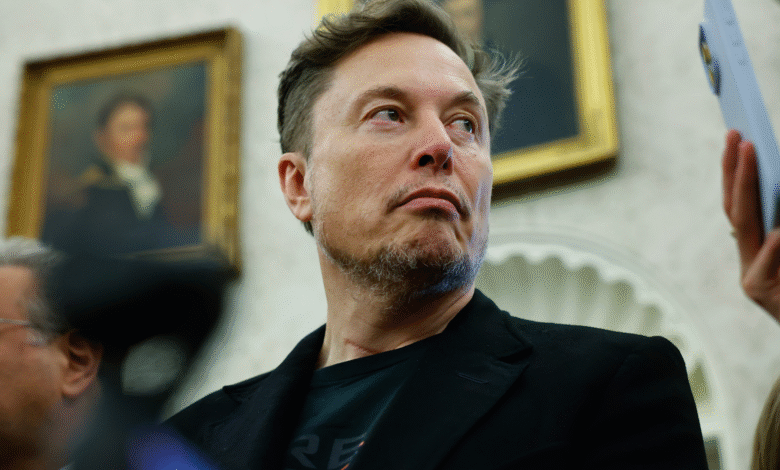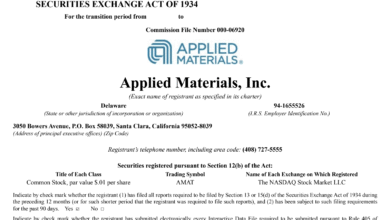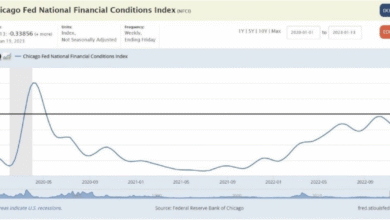Musk Criticized Trump’s Tax Bill as ‘DEBT SLAVERY’

Musk criticized Trump’s tax bill as ‘DEBT SLAVERY,’ engaging in a heated debate that underscores the growing tensions between the tech billionaire and the current administration. As the CEO of Tesla and SpaceX, Elon Musk has poured nearly $290 million into supporting Trump and other Republicans during the 2024 election cycle, yet his recent remarks signal a potential shift in allegiance. Musk’s fierce critiques of the expansive tax-and-spending legislation touted by Trump reveal not only his discontent but also his commitment to challenging those who support it. Labeling the bill as detrimental to fiscal conservatism, Musk has made it clear that any Republican backing this legislation should brace for consequences in their upcoming primaries. This clash highlights broader implications for the future of fiscal policy and the sentiment of a growing faction seeking a “new political party” aligned with more conservative financial principles.
In a striking move, prominent entrepreneur Elon Musk has voiced his opposition to the major tax legislation advocated by former President Donald Trump. By branding this financial initiative as a form of ‘DEBT SLAVERY,’ Musk has ignited discussions around the implications for fiscal responsibility within Republican ranks. This criticism aligns with his substantial financial support for GOP candidates in the lead-up to the critical 2024 elections, raising questions about loyalty and the definition of conservative values. Musk’s call for a different political approach underscores a potential shift in American political discourse, advocating for a coalition that prioritizes genuine fiscal conservatism over expansive spending. The unfolding dynamics not only affect the future of Trump’s bill but also signal a burgeoning reality within the Republican Party that could reshape its foundations.
Musk’s Harsh Critique of Trump’s Tax Bill as ‘Debt Slavery’
Elon Musk, the CEO of Tesla and SpaceX, has voiced his strong disapproval of Trump’s proposed Republican tax bill, labeling it a detrimental measure that perpetuates ‘DEBT SLAVERY.’ His remarks highlight a growing division between traditional GOP values of fiscal conservatism and the current administration’s approach. Musk argues that the bill, which significantly raises the debt ceiling and introduces substantial government spending, fundamentally undermines the principles that the Republican Party has long claimed to uphold.
In Musk’s view, the tax bill represents a betrayal for any lawmakers who have previously campaigned on reducing government spending. By branding it as ‘DEBT SLAVERY,’ he underscores the notion that this increase in fiscal burden will adversely impact future generations. His criticism serves as a rallying cry, especially to Republican voters, who may feel that their representatives are not acting in the best interest of their constituents.
The Implications of Musk’s Threats Against Republican Bill Supporters
Musk’s strong-worded support for candidates opposing the tax bill may significantly influence upcoming primaries. By declaring his intent to unseat Republicans who vote for what he deems irresponsible fiscal policies, he has exhibited a powerful stance that may sway public opinion and campaign dynamics. As someone who has invested heavily in the Republican party, his pivot against the GOP establishment presents a notable shift in support that could lead to an emergence of challengers advocating for a more fiscally responsible approach.
The potential impact of Musk’s involvement cannot be understated, especially in the House where election cycles are shorter. House members face the prospect of primary challenges more frequently, and with Musk’s financial backing and vocal media presence, any candidate opposing incumbents who back the bill might gain critical momentum. This dynamic signals a possible restructuring within the GOP as it confronts the tension between establishment figures and new challengers advocating for a return to conservative financial principles.
Calls for a New Political Party: Musk’s Vision for Change
Musk’s call for a ‘new political party’ reflects a broader sentiment among some voters who feel disillusioned by both major political parties. His proposal is not simply a critique of Trump’s policies but suggests a fundamental rethinking of what political representation should look like. By emphasizing the need for a party that genuinely focuses on the people’s welfare, Musk taps into the frustrations of citizens who feel disconnected from elite political maneuvers and unsustainable bipartisan agreements.
This idea for a ‘new political party’ hinges on the failure of current political structures to address pressing social and economic issues, especially in light of substantial debt incurred through legislative decisions such as the proposed tax bill. As Musk’s influence expands and more individuals engage with his ideologies, there could indeed be fertile ground for a movement that seeks to address the systemic issues within American politics, ultimately aimed at more accountable governance.
The Impact of Musk’s Financial Influence in Upcoming Elections
Elon Musk’s financial contributions to Republican candidates in the 2024 election cycle position him as a key player in shaping political outcomes. His investment of approximately $290 million could sway elections, especially if he channels those funds towards candidates opposing the tax bill. Given the ongoing changes in voters’ sentiments influenced by economic realities, Musk’s financial backing could empower new Republican challengers who resonate more with his views on fiscal responsibility.
As candidates begin to strategize in preparation for the 2024 elections, the stakes are raised for those who choose to align with Trump’s tax plan. The financial implications of Musk’s criticism mean that incumbents who champion the bill might find themselves at a disadvantage. This kehys the possibility that Musk’s discontent could reshape Republican ideology, potentially ushering in a new era of candidates more attuned to the fiscal conservatism that many constituents are calling for.
Examining Musk’s Previous Support for Trump and its Fallout
Historically, Musk has been a staunch supporter of Donald Trump, investing millions in support of Republican candidates. However, his recent public criticism indicates a rift that has developed, stemming partly from his discontent with the directions that party leadership is taking. Musk’s backing of Trump, while substantial, now raises questions about the authenticity of that support in light of his current criticisms of the tax bill, especially given the significant increase in national debt it proposes.
This shift can be viewed as Musk grappling with the implications of supporting a party whose policies may contradict his long-term vision for sustainability and economic stability. His pivotal stance not only challenges Trump’s leadership but also signals a potential change in the political currency Musk has among Republican constituents. The political landscape is dense with contradictions, highlighting a need for deeper reflection on what principles truly underpin the modern GOP.
Understanding the Mechanics of the Bill and Its Potential Fallout
The tax and spending bill pushed by Trump has significant implications for the economy, particularly concerning its approach to the debt ceiling. By raising it by an unprecedented five trillion dollars, Musk argues that the legislation undermines the fiscal responsibility that many Republicans once championed. This move, coupled with cuts to clean energy incentives, raises critical questions about the future of sustainability initiatives and the broader energy sector.
Consequently, the ramifications of this bill are not just financial; they extend to the heart of America’s energy policy and its global implications. As Tesla’s business is closely tied to clean energy, Musk’s criticism reflects not only a personal stake in this legislative battle but also a larger concern about environmental strategies and America’s role in combating climate change. The pushback against the bill may resonate with voters who prioritize environmental issues alongside fiscal conservatism.
Analyzing the Messaging Around ‘Debt Slavery’ in Political Discourse
Musk’s description of Trump’s tax bill as ‘DEBT SLAVERY’ has sparked intense debate within political circles and among the electorate. This form of rhetoric reflects a growing frustration with governmental policies that appear to sacrifice long-term stability for short-term gains. By framing the issue in such stark terms, Musk aims to galvanize a segment of the population that feels the weight of increasing debt and government overreach.
The conversation around the term ‘DEBT SLAVERY’ is likely to shape how fiscal policies are discussed in the lead-up to the 2024 elections. Voters may become more attuned to the implications of legislative actions that prioritize short-term spending without regard for the future economic environment. This framing also serves as a rallying point for those seeking candidates who advocate responsible fiscal management, potentially shifting the narrative within the Republican Party going forward.
The Role of Social Media in Shaping Political Opinions: Musk’s Influence
Musk’s active use of social media has significantly amplified his criticisms of Trump and the tax bill. His statements on platforms like X not only reach millions but also foster discussions that extend beyond political circles into mainstream media. This ability to influence public discourse highlights the evolving role of social media in modern politics, serving as both a megaphone for individual opinions and a tool for mobilizing support.
Through these channels, Musk has been able to clarify his stance and call out specific political figures, thereby creating a narrative that can attract attention and drive conversations about fiscal conservatism. This engagement can prompt voters to reassess their loyalties and challenge existing political norms, especially in light of Musk’s discourse on the need for a new political entity emphasizing accountability and transparency.
Exploring the Future of the Republican Party Amidst Internal Conflict
Musk’s criticisms and calls for a new political party signal potential turmoil within the Republican Party as factions vie for influence over its future direction. His warnings to incumbents suggest that there may be significant consequences for those who stray from perceived principles of responsibility and governance. As various groups within the party navigate this internal schism, the outcome could determine the party’s sustainability heading into the critical 2024 elections.
This internal conflict highlights a broader struggle within the GOP as it attempts to reconcile traditional conservative values with the current political landscape shaped by figures like Trump. Musk’s active participation in this debate may inspire grassroots movements focused on reform, pushing Republican candidates to be more accountable to their constituents’ grievances about government spending and fiscal policy.
Frequently Asked Questions
What are Elon Musk’s main criticisms of Trump’s tax bill?
Elon Musk has criticized Trump’s tax bill, labeling it a ‘DEBT SLAVERY bill’. He argues that the bill, which proposes significant increases to the debt ceiling, undermines fiscal conservatism and penalizes those who campaigned on reducing government spending.
Why did Musk reference ‘DEBT SLAVERY’ in his criticism of Trump’s tax bill?
Musk used the term ‘DEBT SLAVERY’ to emphasize his belief that the tax bill would lead to unsustainable national debt, burdening future generations and contradicting promises made by Republicans to maintain fiscal responsibility.
How has Musk’s relationship with Trump changed regarding the tax bill?
Although Musk has historically supported Trump and invested significantly in Republican campaigns, he has publicly criticized Trump’s tax bill, signaling a rift and a commitment to oppose Republicans who endorse the legislation.
What impact might Musk’s criticism have on Republican supporters of Trump’s tax bill?
Musk has threatened to oppose Republican lawmakers who support Trump’s tax bill in primary elections, potentially influencing their campaigns and voter perceptions, particularly in the House where elections occur more frequently.
What does Musk mean by advocating for a ‘new political party’?
Musk’s call for a ‘new political party’ stems from his frustration with current Republican actions, particularly their support for a tax bill he perceives as detrimental to fiscal health. He believes a new party could more effectively represent the interests of the people.
How does Musk feel about Republican Congress members voting for Trump’s tax bill?
Musk feels that any Republican Congress members who voted for the bill, especially those who campaigned on reducing government spending, should be embarrassed and will face consequences in their primary elections.
What are the potential consequences for fiscal conservatives who support Trump’s tax bill according to Musk?
Musk has stated that fiscal conservatives who support Trump’s tax bill risk losing their seats in upcoming primary elections, warning them that they will incur his wrath for their votes.
How does Musk’s criticism reflect his views on the current political landscape?
Musk’s statements reflect his view that the current political landscape lacks true fiscal conservatism, suggesting that both major parties may not represent the interests of the public, which he believes necessitates the creation of a new political party.
Why did Musk criticize specific House Republicans regarding the tax bill?
Musk specifically called out House Republicans Andy Harris and Chip Roy for their support of the bill, questioning their commitment to the principles of the Freedom Caucus if they vote for what he calls a ‘DEBT SLAVERY bill’.
What do critics say about the proposed tax-and-spending legislation championed by Trump?
Critics, including Musk, argue that the proposed legislation will significantly increase the national debt and adversely affect clean energy initiatives, which are vital for sustainable development.
| Key Point | Details |
|---|---|
| Musk’s Criticism of Tax Bill | Musk labeled the bill as ‘DEBT SLAVERY’ and opposed its quick passage by Republicans. |
| Political Threats | He vowed to defeat any fiscal conservatives who support the bill in primary elections. |
| Financial Backing of Republicans | Musk has invested about $290 million in backing Trump and other Republican candidates. |
| Legislation Impact | The bill proposes significant increases to the debt ceiling and cuts to clean energy incentives. |
| New Political Movement | Musk suggested the need for a new political party that truly represents the people’s interests. |
Summary
Musk criticized Trump’s tax bill as ‘DEBT SLAVERY,’ expressing his disdain for its potential to burden future generations with unsustainable debt. The Tesla and SpaceX CEO has taken a strong stance against this tax-and-spending legislation, vowing to oppose any Republicans who support it in their upcoming elections. His remarks underscore a broader frustration with the current political landscape, advocating for a new party that prioritizes fiscal responsibility and the interests of the people. With claims of record debt increases, Musk’s urgency highlights the significance of this issue in the ongoing political discourse.




